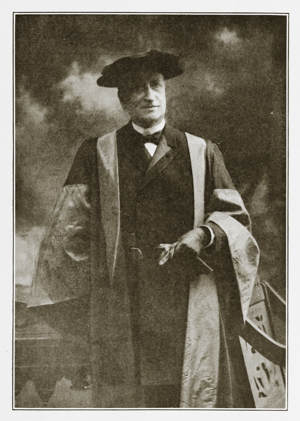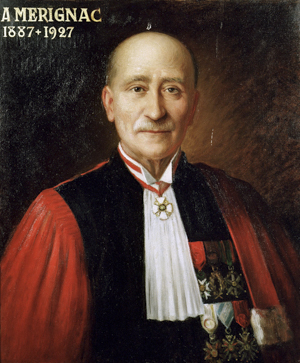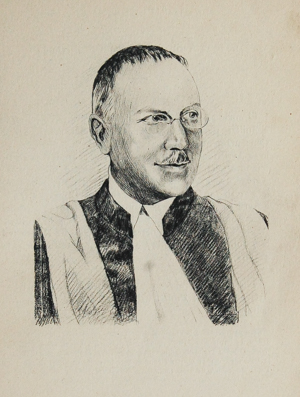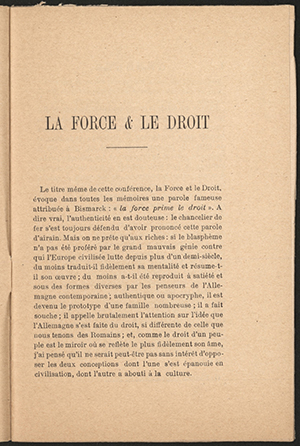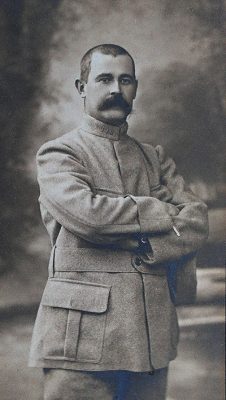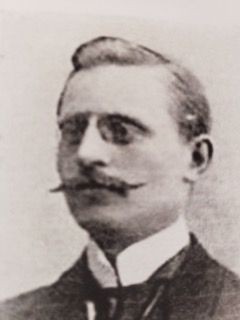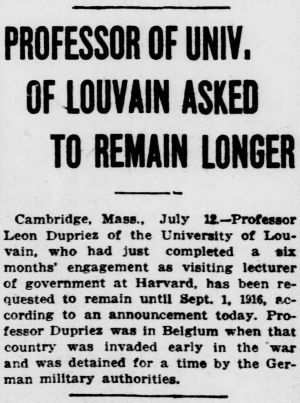Louis Renault : legitimizing international law in France
This bookseller’s son, born in 1843, went to law school in Paris and graduated in 1861. Professor of Roman law and commercial law at the University of Dijon (the latter field also being that of his colleague Charles Lyon-Caen, also born in 1843, with whom he co-authored a book), he replaced Charles Giraud for the course on the law of Nations at the Faculty of Paris, before succeeding him in 1888. He also taught at the new École libre des sciences politiques, which was a breeding ground for French internationalists. A jurisconsult at the Ministry of Foreign affairs on the Quai d’Orsay since 1890, the representative of France at the Hague peace conferences of 1899 and 1907, member of the Institute of International Law sincepour lire la suite…
Alexandre Mérignhac (1857-1927), a voice for international peace
Officer of the Légion d’Honneur, Officer of Public Instruction, Knight of Agricultural Merit, Commander of the Order of Isabella the Catholic, Knight of the Crown of Italy ; the decorations are many but the eyes seem melancholic. Alexandre Mérignhac, a forgotten figure, offers a contrasting image. In his time honored both nationally and internationally, he has experienced many disappointments in his constant fight, if not for a total eradication of war, at least in favor of its codification and the establishment of international peacekeeping bodies. Born in Toulouse on January 21, 1857, this son of a lawyer defended at the age of 20 his doctoral thesis devoted to the Law of resale by mortgage in Roman and French law, before becoming in turn a lawyer at thepour lire la suite…
Professor Geouffre de La Pradelle in America (1914-1917)
The act of violation of the neutrality of Belgium and Luxembourg, committed by Germany in the first days of August 1914, has powerfully helped shape a representation of the conflict in which France and its allies might pose as virtuous champions of the law threatened by German barbarism. But it also had the paradoxical effect of placing neutral countries at the heart of a confrontation in which they refused to enter militarily. For Germany’s offhand attitude towards two states benefiting from such status, recognized and protected by international treaties which it had itself ratified, and its contempt for those treaties, reduced to the rank of “scraps of paper” by Chancellor Bethmann-Hollweg, were not only a radical challenge to the emerging discipline that was then internationalpour lire la suite…
Professorial mobilization : the case of the Lyon Faculty of Law
In a military conflict, universities are likely to provide the State on which they depend with resources of various kinds. The first of these is human in nature, through their students and, less numerous, their teachers who joined the armed forces. In such a context, universities are still likely to contribute scientific resources, the military applications of which can sometimes be decisive. Finally, they can provide significant symbolic resources. Intellectual production, by the mere fact that it persists in adversity, attests to the vigor of the belligerent country as well as its capacity to resist the inevitable disorganization engendered by the conflict. But this intellectual production can still, in its own way, contribute to the war effort by working to consolidate the belligerent resolve ofpour lire la suite…
Gustave Chéneaux, “nothing but good things to be said of him”
On April 29, 1920, in front of an assembly of students and professors of the Bordeaux Faculty of Law, Dean Léon Duguit delivered a speech in which he paid tribute and mourned the disappearance of one of his colleagues, professor of Civil Law Gustave Chéneaux. Published later, this speech arouses contrasting sentiments in the reader, as the will to justify the butchery that was this war transpires in the word of the eminent jurist. However, Duguit’s words were marked by real fondness and palpable sadness as they dwelt on the personality of this teacher, “killed by the enemy” on April 29, 1915 near Verdun. The dean first praised all the simplicity of the disappeared man, his obstinacy and his work ethic. Mentioning these traits, which can bepour lire la suite…
Glory and Memory of Louis Boulard (1877-1914)
n the summer of 1914, everything came together to make Louis Boulard a happy man on all levels. The university curriculum was flawless. After a doctorate defended at the Paris Faculty of Law in 1902, rewarded with a thesis prize, he joined a Bar, while giving lectures in said faculty. In 1907, he was appointed in Lille to replace Professor André Giffard, who had been sent on a mission, and he taught legal history. From the outset, Boulard established himself as an excellent pedagogue. This is evidenced by the particularly laudatory appreciation expressed by Dean Pilon, who was not known for his indulgence, at the end of this first year in Lille. Stressing his erudition and dedication, he predicted a bright future for him : ” M. Boulard serapour lire la suite…
The Leuven Faculty of Law : Professors in War
On the eve of the war, in 1914, the Leuven Faculty of Law had fifteen tenured professors, and two professors emeriti. Some of these professors has another profession on top of teaching. They were, for some of them, active in the Catholic Party, and the cumulation with a political mandate, at the local or national level, or with a ministerial position was quite common. The war affected their activities in several ways. The start of the war and the events of August 1914 particularly brutally affected the city of Leuven, and the university even more. On August 2, 1914, Germany sent an ultimatum to the Belgian government. Less than forty-eight hours later, the first houses were set on fire near the German border. On August 5, the Belgianpour lire la suite…

